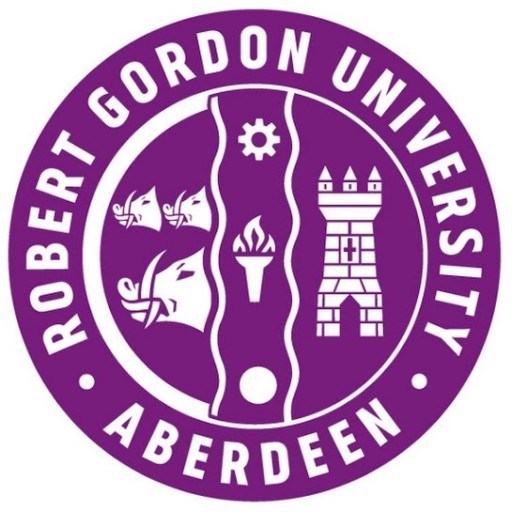Photos of university / #londonschoolofeconomics
Undergraduate Program in Management with Law at the London School of Economics and Political Science (LSE)
The Management with Law program at LSE offers a rigorous interdisciplinary education designed to equip students with a comprehensive understanding of business management principles alongside core legal knowledge. This unique combination prepares graduates to navigate complex legal and managerial challenges in a variety of professional environments. Throughout the course, students explore fundamental topics in management, including organizational behavior, strategic management, economics, and finance, complemented by in-depth studies of legal concepts such as contract law, corporate law, intellectual property, and legal systems. The program emphasizes developing critical thinking, analytical skills, and an understanding of how legal frameworks influence business practices and decisions.
Students benefit from LSE’s distinguished faculty, who bring both academic expertise and practical experience, fostering an engaging learning environment that encourages active participation and real-world application. The curriculum integrates case studies, group projects, and practical assignments to bridge theory and practice effectively. Additionally, students have opportunities to engage with industry through internships, guest lectures, and networking events, gaining insights into contemporary issues affecting management and legal sectors globally.
The program is structured to cultivate versatile graduates capable of pursuing careers in corporate law, management consultancy, policy analysis, entrepreneurship, or further academic research. It also aims to develop communication, problem-solving, and leadership skills crucial for success in dynamic professional settings. With its strategic location in London, students have access to a vibrant legal and business community, facilitating valuable connections and experiential learning opportunities.
Graduates of Management with Law at LSE leave well-equipped to contribute to the legal and management fields, possessing a distinctive skill set that combines legal literacy with managerial competence. The program’s rigorous academic standards, coupled with its focus on real-world applications, ensures that students are prepared for the demands of modern global markets and governance. Whether students aspire to work within companies, government agencies, or legal practices, this program provides a solid foundation to build a successful career and make impactful contributions in their chosen fields.
Detailed Course Facts
Application deadline October Tuition fee- GBP 4006 Year (International)
Tuition fee per standard entry route.
£3,026 for the BSc degree through the Graduate Entry Route.
Start date November 2015 Duration full-time 36 months Languages Take an IELTS test- English
Course Content
Standard Route- Principles of accounting
- Elements of the law of contract
- Common law reasoning and institutions
- Business and management in a global context (NEW)
- Commercial law LA3017
- Company law
- One 300 course from Selection group M
- One 300 course from Selection group M
- One 300 course from Selection group M
- One course from Selection group M
- One 200 or 300 course (or two half courses) from any Selection group
- One 100, 200 or 300 course (or two half courses) from any of the Selection groups
- Graduate Entry Route
- Principles of accounting
- Elements of the law of contract
- Business and management in a global context (NEW)
- Commercial law LA3017
- Company law
- One 300 course from Selection group M
- One 300 course from Selection group M
- One 300 course from Selection group M
- One course from Selection group M
English Language Requirements
IELTS band : 6 TOEFL paper-based test score : 580 TOEFL iBT® test : 87
To study at this university, you have to speak English. We advice you to
take an IELTS test. More About IELTSRequirements
Academic Requirements
To be eligible for the BSc degree you must:
- normally* be aged 17 or above by the 30 November in the year of registration and satisfy the Universitys General Entrance Requirements and
- demonstrate competence in Mathematics at least equivalent to UK GCSE/GCE 'O' level at Grade C or above (equivalents can be found within the above link).
*Applications will be considered from applicants who do not meet the normal minimum age requirement for admission. Each application will be considered on an individual basis, and the decision taken at the discretion of the University of London.
If you are not automatically eligible then you will be individually considered by the University of Londons Special Admissions Panel. The Special Admissions Panel will consider qualifications which are not published under the Qualifications for Entrance Schedule, incomplete qualifications (e.g. diplomas / degrees) and substantial relevant work experience. If we cannot accept you with your current qualifications and experience, we will advise you what qualifications you could take in order to become eligible in the future.
Graduate entry route
The following are eligible for graduate entry:
- graduates holding a full first degree from an acceptable university in the United Kingdom or another European country or in Argentina, Australia, Brazil, Canada, Ghana, Hong Kong SAR, Israel, Kenya, Malaysia, Mauritius, New Zealand, Nigeria, Singapore, Sri Lanka, South Africa or the Caribbean
- graduates holding a full first degree from a regionally accredited institution in the USA
- graduates holding a full first degree from an acceptable university in India which is at least three-years full time in duration.
Applications from students with other degrees not listed above will be considered at the discretion of the University. Professional qualifications cannot be considered for Graduate Entry. In addition to holding an acceptable full first degree applicants must also satisfy the above Mathematics and English language requirements.
Work Experience
No work experience is required.
Related Scholarships*
- Academic Excellence Scholarship
"The Academic Excellence Scholarship can provide up to a 50 % reduction in tuition per semester. These scholarships will be renewed if the student maintains superior academic performance during each semester of their 3-year Bachelor programme. The scholarship will be directly applied to the student’s tuition fees."
- Access Bursary
Bursary for UK students all subjects where the variable tuition fee rate is payable.
- Alumni Bursary
Alumni Bursary for UK Undergraduate students
* The scholarships shown on this page are suggestions first and foremost. They could be offered by other organisations than London School of Economics and Political Science.
Funding
Sponsorship from your employer
Many students receive financial support from their own employers. As you study by distance learning you can continue with your studies while you work, and do not need to take time away from the workplace. See the employers section on our website for guidance for employers.
Other sources of funding
The level of competition for sponsorship and educational awards is extremely high, so we recommend that you investigate funding early. Do not delay in making an application as in some instances an offer of a place can be advantageous in a funding application.
There are a variety of sources of funding available, dependent on your nationality, employment and other factors. We recommend that you look at the following, although this is not an exhaustive list:
- UK students may be eligible for a part-time tuition fee loan
- The Aga Khan Foundation [external link] which provides a limited number of scholarships each year for postgraduate studies to outstanding students from developing countries who have no other means of financing their studies.
- United Nations (UNESCO, FAO, UNDP, UNEP etc)
- Bilateral Aid Agencies (SIDA, GTZ, etc)
- European Union
- British Council
- UK Department for International Development / Foreign & Commonwealth Office
- NGOs
- Educational and other charitable trusts
Accreditation
LSE was founded 1895 by four idealistic young Fabians for the "betterment of society". It adopted rerum cognoscere causas, which means to know the causes of things, as its motto.
The desire to bring academic expertise to bear on the problems of society motivated the founders of LSE and underpins the School's vision and strategy today.
LSEs vision for 2011-16
- to deliver challenging, stimulating, research led degree programmes in an environment that supports learning and develops independent thinking among our students
- to ensure that our research and teaching remain at the forefront of the social sciences, addressing the evolving challenges of society
- to be among the most internationally-oriented centres of social science excellence in the world
- to extend our engagement with society across our full academic portfolio and in key regions of the world and
- to enrol the best students from around the world to benefit from, and contribute to, the learning environment at the School.
Teaching and student experience
Students at LSE receive research-led teaching from an internationally renowned academic staff. At the heart of this is intellectual challenge. Through exposure to the latest developments in social science and to the thinking of visiting world leaders, business figures and academics in debates and public lectures, students are challenged and inspired by LSE's vision of intellectual excellence combined with real-world engagement.
LSE is currently focusing on increasing contact hours between permanent academic staff and undergraduate students; reducing postgraduate class sizes; improving teaching quality; and improving staff and student contact and student satisfaction levels in relation to the academic experience, including Library and IT services. It will also continue to improve its estate, in particular the exciting Saw Swee Hock Student Centre which opened in 2014, having already been awarded an outstanding BREEAM rating.
Research
LSE is a world leader in social science research. The School protects and encourages theoretical and "blue skies" research while promoting dynamic engagement with wider society.
The UK Research Assessment Exercise (RAE) in 2008 revealed LSE to have the highest percentage of world-leading research of any university in the country, topping or coming close to the top of a number of rankings of research excellence. LSE submitted over 90 per cent of eligible staff for assessment.
LSE is currently focusing on increasing the amount of research funding, especially from peer-reviewed external sources; learning lessons from RAE 2008; Research Excellence Framework (REF) 2014; and improving the quality of research space.
Engagement
LSE is an outward-facing university, constantly engaged with the big policy issues of the day and communities around the world. Its academics are frequently to be found in the media, commenting on issues from the global economy to the government of London. Many serve on government panels and advise international organisations, businesses and charities.
The public lectures programme at LSE embodies the School's engagement agenda and caters to the thirst for informed debate. Global leaders in politics, business and the academic world come to LSE to discuss the issues of the day. LSE also runs a prestigious executive education programme, with Summer Schools in London and Beijing offering intensive courses.
The School is committed to widening participation in higher education, through engagement with secondary schools and their pupils throughout London.
LSE promotes knowledge exchange by "translating" academic research into accessible formats and by better targeting of public lectures.
LSE will also develop our institutional partnerships overseas.









